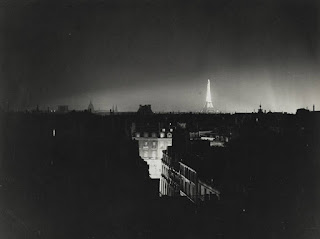From my home in Pennsylvania, I have watched the evolution of the gilets jaunes (yellow vests) protests in France.
The phenomenon has been badly misunderstood by much of the Anglophone media (who often seem puzzled by the peculiarities of Gallic history and culture, and couldn’t quite figure out the satirical weekly Charlie Hebdo, for example, either), and I thought it might be worth writing a short explainer and analysis for my English-speaking friends. By way of background, I've been visiting France regularly for the last 24 years, lived there for a number of years in two working class communities (Château Rouge in the 18eme and Bagnolet in Seine-Saint-Denis), follow its media and culture and have traveled relatively widely there.
There is a lot of legitimate anger at the French state and political class as whole, which, make no mistake, for many people includes the whole political spectrum, from President Emmanuel Macron's La République En Marche! to the traditional left Parti socialiste to the traditional right Les Républicains to even the far left La France Insoumise of Jean-Luc Mélenchon and the far right Rassemblement national (formerly Front national) of Marine Le Pen
A lot of people in France really have seen their lives becoming worse, with wealth distribution over the last decade (at least) concentrated among the urban upper classes, while middle and working class people - especially in non-urban areas - have seen their services cut in terms of public transportation (leading people to depend more on cars) and healthcare. People have seen their wages stagnate as the cost of living has increased.
The comments of a 32 year-old mother of three interviewed by the Guardian’s Angelique Chrisafis, who bemoaned the fact that she “lived in misery” and was “constantly overdrawn at the bank” (a struggle I can relate to all too well) and that should couldn’t “see a better future” for her children are fairly typical.
For people like this, the glittering “startup nation” that Macron - who himself was elected only last year as a rupture with the traditional political establishment - has talked about might as well be as distant as the moon, as they are really struggling just to get from one week to the next, to raise a family on 2,000 euros a month, to figure out how to get to work every day. One can see why the new fuel tax, which would impact this strata of society immediately and brutally, would prove a spark to a tinderbox. To view this mass of people - many of whom have few if any connections to traditional political parties, labor unions or other linchpins of French civic life - as mere pawns of local or foreign powers would be a big mistake.
In many ways, the movement is schizophrenic, on one hand demanding more services while on the other hand demanding lower taxes, restrictions on immigration and other, frankly reactionary, aims.
However, it would also be deeply naive to see the violence that has wracked France in recent weeks as the simple cri de coeur of France’s working class, and to miss the more ominous signals coming from the gilets jaunes.
It is worth noting that, thus far, France’s non-white working class, the inhabitants of the cités and habitation à loyer modéré (often abbreviated to HLM, and meaning rent-controlled public or private housing), who demonstrated after the deaths of youths in the Paris suburbs of Clichy-sous-Bois in 2005 and in Villiers-le-Bel in 2007 (I reported on the latter) have thus far been largely absent from the gilets jaunes movement. There are several reasons for this, including the fact that they often have even-lower paying jobs than the gilets jaunes, use public transportation within and around major cities (and thus are less dependent on private cars) and may simply not want to expose themselves to the violence that has been an inescapable element in recent weeks.
However, there are other, more troubling signs. Last month, at a gilets jaunes roadblock in northern France a truck full of migrants was stopped and turned over to police amid gloating abuse from the demonstrators. The fact that, at various points, outside agitators, including those from the extreme right and those from other countries, have been involved in the Paris violence is beyond dispute. Policewomen working at the protests have been the subjects of base, misogynistic abuse.
Some demonstrator have called for Pierre de Villiers, a French army general and former Chief of the Defence Staff, who had publicly criticized Macron’s plan to reduce defense spending, to replace Macron. As Daniel Cohn-Bendit, better known as Dany le Rouge (Danny the Red), one of the leaders of France’s May 1968 student uprisings has pointed out, the uprisings of 50 years ago sought to oust a general (Charles de Gaulle) from power, not put one in as head of state.
The parties of France’s bitter, naysaying extremes have also, quite naturally, attempted to use the unrest to their advantage and as a recruiting tool.
As is their wont, accounts known to promote Kremlin views have signal-boosted news of the gilets jaunes protests and encouraged extremism and recrimination across a variety of social media platforms.
It remains to be seen whether or not Marcon's address to the nation yesterday - during which he announced a range of measures while admitting he knew he had "hurt" some by his words and actions and pledged that he "fought to shake the system in place... precisely because I want to serve our country and I love it"- will be enough to placate the gilets jaunes and the potentially far more destructive forces percolating around their fringes.





